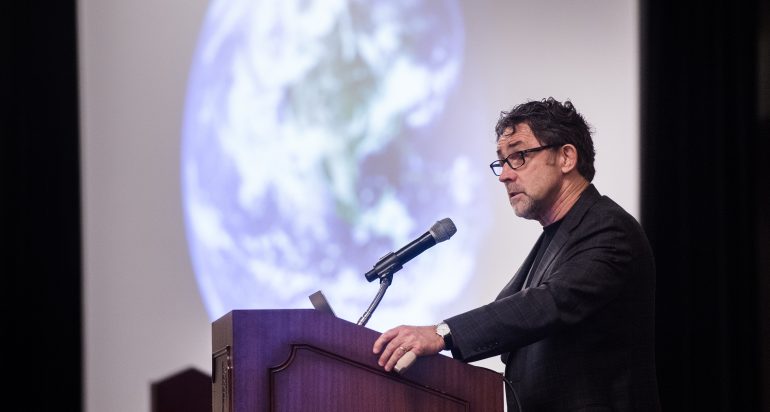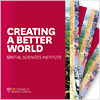John P. Wilson, USC professor of sociology and spatial sciences, and Cyrus Shahabi, USC professor of computer science and electrical engineering, were two featured GISCientists on stage at the first Esri Science Symposium held on June 28, 2016 in conjunction with the Esri User Conference and Esri Education GIS Conference in San Diego, California.
Wilson, who also serves as founding director of the USC Spatial Sciences Institute, and Shahabi, who also serves as the director of the Information Laboratory (InfoLAB) and the NSF Integrated Media Systems Center (IMSC) at USC, provided TED-style reaction to the symposium keynote address by Dr. Margaret Leinen, Director of Scripps Institution of Oceanography and President of the American Geophysical Union. Joining Wilson and Shahabi in response to Leinen’s keynote on “What will be necessary to understand and protect the planet. . . and us?” were Professor Marco Painho from the University Nova de Lisboa and Professor Ming Tsou from San Diego State University. UC Santa Barbara Emeritus Professor of Geography Michael Goodchild moderated the panel discussion and the lively Q&A with the approximately 600 symposium attendees.
Dawn Wright, Esri chief scientist, convened the first-ever science symposium to “broaden the tent” of participation beyond the traditional geographers and GIScientists to those working in the domain sciences (e.g., ocean science, hydrology, ecology, forestry, climate science, geology/geophysics, agricultural science, conservation biology, sustainability science and/or geodesign, health sciences, and the social sciences). A further symposium aim is to strengthen the links between Esri and the scientific community while (re)crystallizing a community of scientists at the User Conference normally scattered throughout the week in disparate sessions.
In his remarks, Wilson stressed the value of geographic information science (GIS) as an “enabling science,” and one which magnifies the impact which all other sciences can have in addressing “wicked” global issues. Added Wilson, “GISCience therefore is also an inherently collaborative science,” and offered by way of example the interdisciplinary M.S. in Spatial Informatics program at USC which he and Shahabi co-direct. Wilson’s conclusion was in sync with the purpose of the symposium: “GISCientists are outward-looking.”




